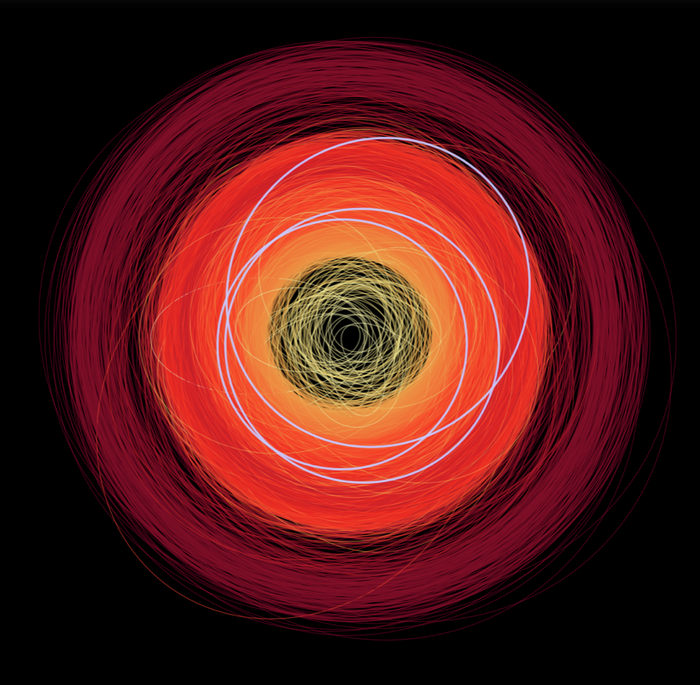Research Round-Up: What you missed over the winter
Ananya Vijay keeps you up-to-date with the latest scientific discoveries in Cambridge.
The “North-South divide”: cause of difference in multiple sclerosis cases uncovered

Through a comprehensive analysis of the bones of nearly 5,000 humans, researchers have discovered the reason behind the prevalence of Alzheimer’s and multiple sclerosis in Northern Europe. The genetic risk profile in the bones they studied (from humans living thousands of years ago) contained 233 genetic variants that increase the risk of MS by approximately 30%.
“The significance of studying the past is evident”
These genetic variants existed in the Yamnaya people, herders who migrated into North-Western Europe. It is speculated that it would have been favourable to carry these genes thousands of years ago, as they most likely alleviated the risk of contracting infections from the livestock they herded. The migration of the Yamnaya people also explains the existence of the “North-South divide”, whereby there are twice as many cases of MS in the north of Europe compared to the south.
The significance of studying the past is evident in this case, with Dr William Barrie at the University of Cambridge’s Department of Zoology emphasising that we are “the recipients of ancient immune systems in a modern world.” The team plans to use the DNA profiles to conduct further research into other disorders, such as schizophrenia and Parkinson’s.
Mystery minerals in Venusian clouds discovered
The main composition of the clouds of Venus is known to scientists; however, they had yet to ascertain the minerals responsible for the patches and streaks visible in the UV range. An experiment was conducted where various iron-bearing sulfate minerals were suspended in different concentrations of sulfuric acid in order to mirror the acidic conditions of Venusian clouds. Based on the chemical and mineralogical changes in the minerals, two suitable minerals were obtained: rhomboclase and acid ferric sulfate.
Researchers then attempted to recreate the solar flare spectrum in Venusian clouds, utilising light sources to examine the spectroscopic features of these minerals to corroborate the results at Rimmer’s FlareLab at the Cavendish Laboratory. Clancy Zhijian Jiang from the Department of Earth Sciences confirmed that the “patterns and level of absorption” were “consistent with the dark UV patches observed in Venusian clouds”. This discovery paves the way for future missions to explore Venus’ atmosphere: a planet about which we don’t have much information despite its proximity to the Earth.
“This discovery paves the way for future missions to explore Venus’ atmosphere”
Battling the climate crisis by tackling inequality
Mitigating the effects of climate change is an issue which pervades every aspect of our lives nowadays. Researchers at the University of Cambridge and the University of Oxford contend in a report published in Nature Climate Change that an issue standing in the way of achieving tangible progress is inequality, something which they frame in terms of finances, political influence, and ease of access to low-carbon alternatives.
They believe the main focus should be on introducing policies and opportunities to increase accessibility to low-carbon options for all income brackets. For example, plant-based alternatives for meat are currently more expensive than meat options, creating less incentive to make the switch. However, they don’t dispute the need for interventions for people with higher incomes. Still, Dr Emma Garnett argues that this provides richer people with greater abilities to offset the emissions they create. In conclusion, the suggested modifications include improved urban planning (including pedestrian pathways), low-carbon meals subsidised by employers, and higher ta14x rates.
 News / SU reluctantly registers controversial women’s soc18 December 2025
News / SU reluctantly registers controversial women’s soc18 December 2025 Features / Should I stay or should I go? Cambridge students and alumni reflect on how their memories stay with them15 December 2025
Features / Should I stay or should I go? Cambridge students and alumni reflect on how their memories stay with them15 December 2025 News / Dons warn PM about Vet School closure16 December 2025
News / Dons warn PM about Vet School closure16 December 2025 News / Cambridge study finds students learn better with notes than AI13 December 2025
News / Cambridge study finds students learn better with notes than AI13 December 2025 News / CUP announces funding scheme for under-represented academics19 December 2025
News / CUP announces funding scheme for under-represented academics19 December 2025









